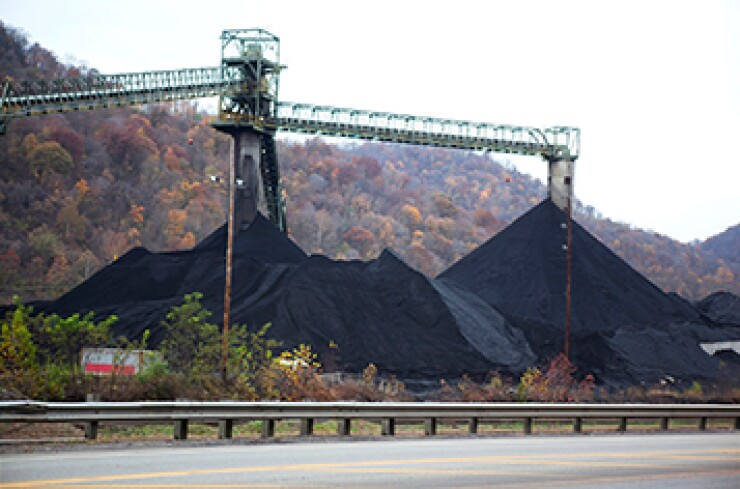
BRADENTON, Fla. – An appellate court's refusal to stay the Environmental Protection Agency's Clean Power Plan is credit negative for cities that financed coal-fired units with $9 billion of revenue bonds, Moody's Investors Service said Monday.
A West Virginia-led coalition had hoped to temporarily block the EPA rule, but the U.S. Court of Appeals for the District of Columbia denied the request last week.
Moody's said the court ruling is a credit negative for big coal-fired generators, more than 300 cities that issued bonds to finance the coal units, and for states such as West Virginia and Kentucky, which benefit from coal-related severance tax revenue, because the plan will accelerate the transition to cleaner electricity supplies.
"The cities' new coal-fired units, which are highly efficient and meet all current EPA environmental regulations, will be subject to state implementation plans under the Clean Power Plan," analysts said. "To comply, the coal-fired units might have to run less or could be subject to a carbon cap-and-trade program."
The affected states will continue to be negatively affected as the protracted decline in coal consumption hampers severance tax revenue, coal employment, and income.
West Virginia collects severance taxes equal to 7% of general fund revenues, while Kentucky collects 1.8%, according to Moody's.
Coal severance tax revenues in West Virginia are expected to fall to $198 million in fiscal 2016, a 29% decline from fiscal 2015 although analysts said a portion of the decline is due to an increase in revenues distributed to local governments.
More than 50 separate lawsuits have been filed by 27 states and opponents challenging the EPA's rule to curb greenhouse gases from power plants.
Many suits are now consolidated with West Virginia's case, which now moves to the briefing period, and the EPA rule remains in effect for the duration of the litigation.
The Appeals Court will hear oral arguments in the lawsuit on June 2.
Regulators telegraphed the new carbon dioxide emissions standards for more than a year, though some coal-heavy states found the rule surprising because their reduction targets were more stringent than under earlier versions of the proposal, Moody's analysts said.
As a compromise, the EPA eased the timeline for compliance to 2022 and established an early incentive program for energy efficiency and renewable energy projects.
In West Virginia, the state Department of Environmental Protection is working on a legislatively ordered feasibility study of complying with the EPA mandate, according to the West Virginia Gazette.
In Virginia, a House committee last week passed a bill that would give lawmakers oversight of how the state implements its response to the Clean Power Plan, although Gov. Terry McAuliffe has said he will veto such legislation.
In Florida, which has also joined litigation fighting the EPA rule, bills are currently moving in the Legislature that would prohibit the state from submitting a plan until Congress regulates carbon dioxide emissions or the federal court issues a final judgment in the pending suit.





